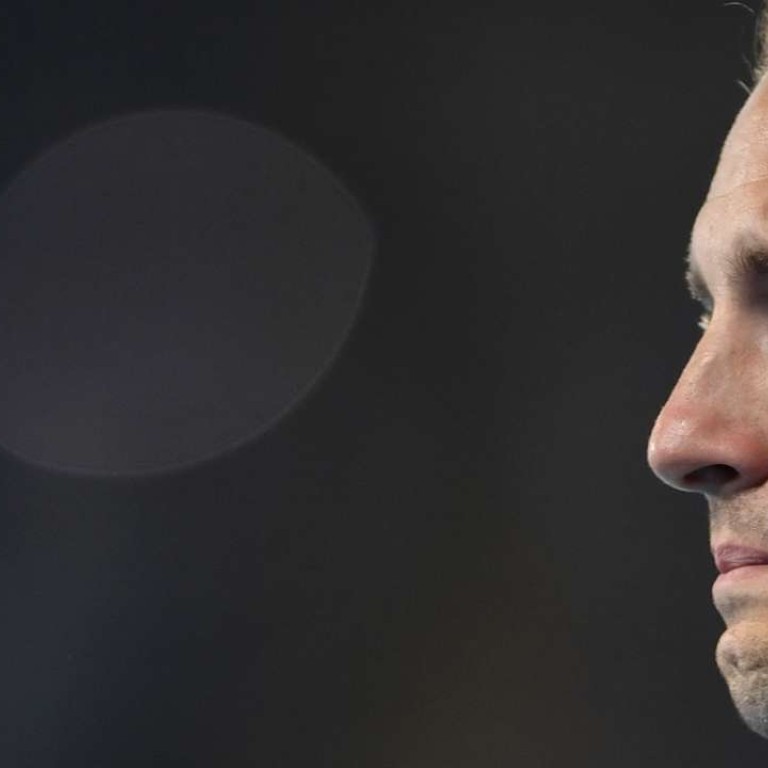
Rio 2016 Olympics: The Crying Games
Dark forces in the form of men in suits peer out from behind the curtains in pursuit of money and status
The Olympic Games melt the hardest of cynical hearts. For all the power, strength and toughness of the athletes, Rio 2016 will go down as the Crying Games as tears of happiness, disappointment, loss and victory have flowed from huge weightlifters to tiny trampoliners.
The actors take on Shakespearean characteristics as they “imitate the action of the tiger, stiffen the sinews and disguise fair nature with hard-favoured rage” before so many burst into floods of tears. Tough global competitors Mo Farah, Novak Djokovic, Serena Williams, Sun Yang and Kristi Armstrong, tennis finalists Andy Murray and Juan Martin del Potro as well as divers Jack Laugher and Chris Mears blubbed like babies to the world in the face of victory or defeat.
For the effort of seeing athletes go Citius, Altius and Fortius (faster, higher, stronger) is steeped in emotion – which is why we lose ourselves for those seconds just before they reach for the wall of the pool, sprint the last 50 metres to the tape or move so elegantly through gymnastics routine.
Sport brings out the best in human nature, but while we are holding our breath, it also brings out the worst as dark forces peer out from behind the curtains. While we are enthralled by the emotion, for them, the race is about making money faster, getting higher status and strengthening their business contacts. These are the men in suits, the “old farts” as former England rugby captain Will Carling once called them.
The buck stops at the International Olympic Committee, which as a group gives the impression of not only having its snouts in the trough, but its two front trotters as well. Most are third-rate former athletes who demand to be treated like heads of state, with executive jet travel, private driving lanes and motorcades around the host city. Former committee president Juan Antonio Samaranch insisted he be called “His Excellency” and presided over an explosion of drug-taking, epitomised by Ben Johnson at Seoul 1988. A year later, 20 committee members were expelled or sanctioned for the “acceptance of gifts”. Just on Wednesday, senior member James Hickey resigned after allegedly being caught selling Rio event tickets to touts.
It is an all-powerful system where committee members serve for 30 years or more, building pyramids of patronage with the power to crush whistle-blowers. For them, it is definitely “the taking part”. They have power of success and failure over any athlete and so rub shoulders with some very important people.

Bach attacked the world anti-doping agency, denounced the whistle-blowers and justified continued competition by Russia through half-baked reasoning. For if those 270 “clean” Russian athletes who did compete had been banned, they would have turned on their own Olympic committee and eliminated state-sponsored doping. Instead, the IOC line was: “Don’t get caught.”
There are too many bad apples – and far too many in leadership and responsibility
The spineless IOC was put into context by John Craven, the wheelchair-bound president of the International Paralympic Committee, who said: “The Russian government has catastrophically failed its para-athletes. Their ‘medals over morals’ mentality disgusts me. The complete corruption of the anti-doping system is contrary to the rules and strikes at the very heart of the spirit of Paralympic sport. It shows a blatant disregard for the health and well-being of athletes.”
We should be really proud of the achievements of our clean Hong Kong athletes. Geoffrey Cheah, who previously lost a podium place to a South Korean drug cheat in the Asian Games, came first in his heat. He then threatened to retire, saying athletes from the bigger countries were “above the rules”.
“I don’t see how it’s acceptable that Sun Yang can serve a three-month secret suspension and show up at the Olympics as if everything is fine. You can’t even train during suspensions,” Cheah says.
But the people who really disgust are those who execute for the dark forces: the men in tracksuits, who force their charges into doping – or worse. It is not realistic to blame a naive 15-year-old who is too young to resist. The problem starts with their coaches.
It is of course not every besuited person behind the athletes who is responsible for making pure sport dirty. Most hold true to the Corinthian spirit of the Olympics. But there are too many bad apples – and far too many in leadership and responsibility. If we can’t get rid of them, we will certainly cry for the Tokyo 2020 Games.
Richard Harris is chief executive of Port Shelter Investment Management. www.portshelter.com

